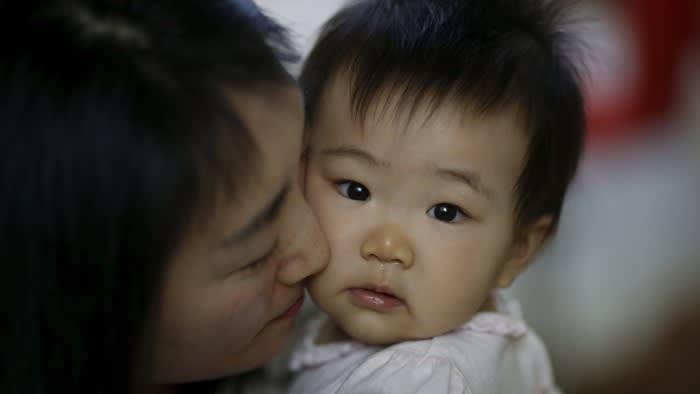Unlock the Editor’s Digest for free
Roula Khalaf, Editor of the FT, selects her favourite stories in this weekly newsletter.
South Korea’s economy needs to adapt urgently to rising competition from China, the country’s finance minister has warned, as its biggest exporters battle for market share in sectors ranging from chips to shipbuilding and display panels.
Choi Sang-mok said in an interview that South Korea had gone from being a beneficiary of Chinese growth to an economic rival and that his country needed to diversify its export-led economy.
“Our economic relationship with China has changed — rather than being a beneficiary of China’s export boom, a rivalry has emerged over the past 10 years,” Choi told the Financial Times ahead of South Korea’s parliamentary election on Wednesday.
“We need stronger competitiveness to better compete with China,” he added. “The Korean economy will face big challenges if we stick to the past growth model.”
South Korea’s economic growth slowed from 2.6 per cent in 2022 to 1.4 per cent last year, hampered by high interest rates, China’s economic slowdown, and a slump in global demand for memory chips, the country’s leading export.
The Bank of Korea estimated that growth would recover to 2.1 per cent this year but many economists have issued warnings about the country’s long-term growth prospects.
The East Asian country has the lowest fertility rate in the world, while household debt levels as a proportion of gross domestic product are among the highest of any developed country, according to OECD figures.
Officials also worry that South Korea is at risk of losing its historic technological edge over China in a range of areas, in part because of a campaign by Chinese companies to accumulate South Korean expertise in critical technologies.
Last year, the US overtook China as South Korea’s leading export destination for the first time in more than two decades. Several Korean conglomerates have sharply reduced operations in China over the past decade amid falling sales.
“China’s rise is likely to erode Korea’s economic growth and competitiveness in the medium to long term,” said Park Chong-hoon, head of research at Standard Chartered in Seoul.
Choi said the country needed to reform its research and development efforts, which have historically focused on developing and commercialising technologies invented elsewhere.
The government recently signalled it was preparing to reverse a 15 per cent cut in the R&D budget for 2024 after it provoked a fierce backlash from South Korea’s research community.
“As we strive to become an innovative leader rather than a fast follower, some changes in our R&D strategy are needed” said Choi. “Although our R&D budget fell this year, we will provide utmost support for R&D spending next year, reflecting the reform results.”
Choi also said the South Korean government was seeking to bring down and restructure the country’s private and public debts, which both surged during the coronavirus pandemic. “I don’t believe that we are facing an immediate debt problem,” he said.
A more pressing issue, he added, was the country’s acute demographic crisis. South Korea’s total fertility rate — the average number of children a woman is expected to give birth to — fell from 0.78 in 2022 to 0.72 in 2023, according to government figures.
“The labour force is decreasing due to the low birth rate,” said Choi, suggesting that South Korea needed to reduce its concentration on the capital, Seoul, and its reliance on manufacturing and the country’s big conglomerates. “To boost productivity, more balanced growth is needed from domestic spending, SMEs and provinces beyond Seoul.”
Analysts said the economic reform efforts of South Korea’s conservative President Yoon Suk Yeol would suffer if leftwing parties retained their parliamentary majority in Wednesday’s elections, as many polls forecast. While the country’s cabinet is appointed by the president, legislative initiatives require parliamentary support.
“The Yoon administration has struggled to pass reform bills and things are unlikely to change much after the elections,” said Park, noting voter anger over high consumer prices. “Reform efforts, including of the capital markets and the pensions system, could stall further if the opposition parties win the elections.”
Read More: World News | Entertainment News | Celeb News
FT










